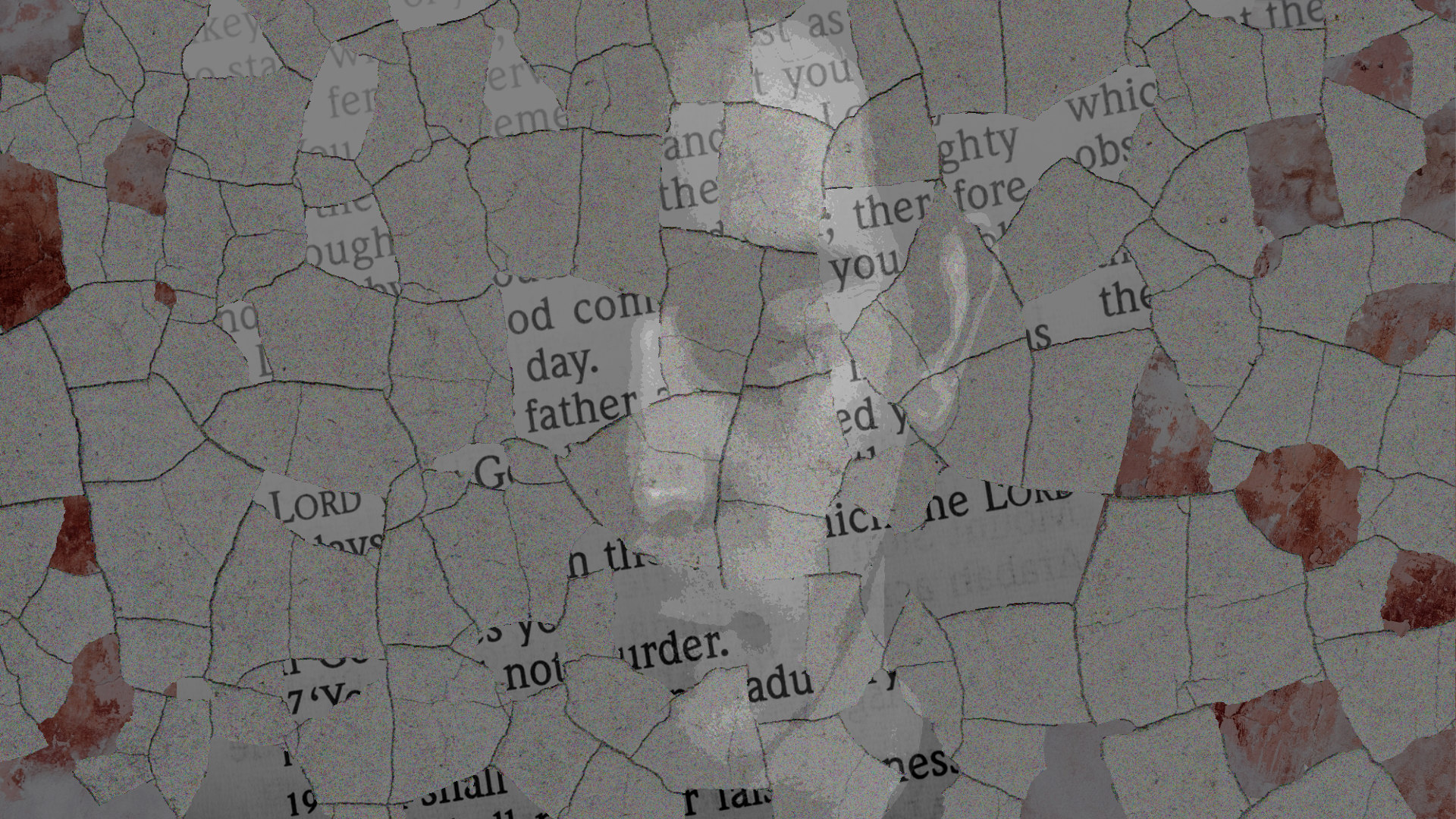
www.thegospelcoalition.org
Battered by Moses? Why We Still Need to Preach the Law
A mysterious traveler overtook Faithful on the road, hit him, knocked him down, and left him for dead. In this famous passage from John Bunyan’s Pilgrim’s Progress, Faithful tells Christian how relentlessly the traveler assaulted him: “When I came to my self again, I cried him mercy; but he said, I know not how to show mercy, and with that knockt me down again.”
Who was this abusive man? Christian knew: “That man that overtook you, was Moses, he spareth none, neither knoweth he how to shew mercy to those that transgress his Law.”
Is Bunyan’s portrait of Moses overblown? Certainly the law condemns those who don’t repent, but is the most humble man in all the earth a pugilist? After all, isn’t there grace in God’s law?
Yes, God’s law is a good gift, yet this passage from Bunyan’s old allegory teaches important lessons Christians today are prone to forget: Even as believers, we need to hear the weight of God’s holy demands to see the gravity of our sin.
Moses’s Law in Its Narrative Context
In Exodus, God rescues Israel before he gives them his moral code, before he asks anything of them. The first words of the Ten Commandments—“I am the LORD your God, who brought you out of the land of Egypt, out of the house of slavery” (20:2)—make clear that God’s demands come in the context of a saving, covenant relationship.
Even as believers, we need to hear the weight of God’s holy demands to see the gravity of our sin.
I often hear preachers emphasize this truth. God gives his people the law as an act of grace after they’re redeemed from oppression. This shows they aren’t saved from Egypt by their performance but by God’s grace.
Yet when we read Numbers, we discover another important truth about God’s law: God gave it to show his people how desperately they still need to be saved. Moses’s staff brought the Hebrews out of Egypt. His tablets showed the people Egypt was still in them.
Before and After Sinai
Before Israel approached Sinai, they quarreled against God, complaining he gave them no food and water. In response, God provided bread from heaven and water from a rock; he didn’t punish them (16; 17:2–7). But as Stephen Dempster observes, God’s response after he gave the law was more severe.
After Sinai, when Israel complained again of thirst, God sent the fire of his wrath to burn the outskirts of their camp (Num. 11:1–3). He later struck down many for being tired of manna (v. 34). Dempster observes how the judgment didn’t stop there:
Whereas pre-Sinai Sabbath violation leads to reprimand (Exod. 16:27–30), post-Sinai trespass leads to death (Num. 15:32–36). Israel succeeds against the Amalekites before Sinai (Exod. 17:8–16) but miserably fails after Sinai (Num. 14:41–44). At pre-Sinai Meribah (Exod. 17:1–7), Israel is rebuked; at post-Sinai Meribah (Num. 20:1–13), Moses and Aaron themselves are condemned to exile.
The before and after shows us the law’s primary function. Sinai’s demands expose Israel’s idolatry, sin, and inability to be faithful. The law worked as a mirror, revealing Israel hadn’t yet experienced the fullness of salvation. It showed them they wouldn’t experience salvation without God’s promised and future redemption (Deut. 18:15–19).
The Law’s Enduring Use
A Christian’s situation differs from ancient Israel’s because Christ’s work is accomplished, and we now experience the Spirit’s enduring presence. Those who boast in God’s promises and Christ’s merits are justified. Praise God! We no longer stand under the law’s condemning power (Rom. 8:1–2). We’re made alive, and the Spirit enables us to love and obey God from a pure heart (vv. 3–17).
Moses’s staff brought the Hebrews out of Egypt. His tablets showed the people Egypt was still in them.
Yet like Israel, we’re still being saved. So Christians still need to hear God’s moral law. It’s possible to preach a gospel-centered sermon that shows how Old Testament narratives point to Christ but never call out sinful anger, fornication, covetousness, or greed. Such preaching doesn’t let God’s law do its important work.
So why do believers like Bunyan’s Faithful still need the law’s demands?
1. The law helps us fight moralism.
Today, we call moralistic people “legalists.” This makes sense because Pharisees always add their own laws and shibboleths on top of God’s law. But moralists also reject what God actually says in the law. They lower his standards of love, trying to make obedience more achievable.
When Jesus encountered the Pharisees, he rebuked them for ignoring God’s law: for straining out a gnat and swallowing a camel; for tithing mint, dill, and cumin but ignoring the law’s weightier matters—justice, mercy, and love (Matt. 23:23–24). He knew moralism is always antinomian at heart. The moralist simply hates God’s Word—both his word of law and his word of promise.
Sometimes we don’t preach God’s moral demands, thinking that’s how to avoid moralism. The opposite is true. We may eagerly call Christians to practice healthy spiritual habits or to pursue godly character that promotes human flourishing. We may advocate for cultural postures or political stances we believe best align with the Bible. But if we promote the practice of an “achievable” way without proclaiming God’s unapproachable holiness, we inadvertently tempt believers toward moral pride or pursuing growth in their own strength.
2. The law pushes us to lean on the Spirit.
Yet when we preach the law of love in all its fullness, Christians come to the end of themselves, acknowledging that God’s law cannot be fulfilled without his empowering help.
Megan Hill often says that when she’s battling pride, she’ll read the Westminster Confession of Faith’s treatment of the Ten Commandments. The confession applies each commandment maximally, exploring both the positive (duties required) and negative implications (sins forbidden) of each commandment. It’s impossible to read through this section of the confession and think you’ve lived up to all God requires. But that’s the point. By “beating us up” and revealing our failures, the law pushes us toward the obedience of faith, that is, obedience that leans on God’s Spirit.
Every believer knows it’s by seeing and confessing our sins, by renouncing and repenting from them, that we come to faith in Christ. What’s too easily missed is that a walk of repentance and dependence on God’s Spirit is the way forward in faithful obedience as well. As Paul asked the Galatians, “Are you so foolish? Having begun by the Spirit, are you now being perfected by the flesh?” (Gal. 3:3). In other words, don’t you know that the way into the faith—repentance and trust—is the way forward too?
3. The law shows us our Savior in all his beauty.
Perhaps most importantly, preaching God’s law helps us see Christ in all his beauty and glory. Behind Bunyan’s picture of Moses in Pilgrim’s Progress is the Reformation distinction between law and gospel. Bunyan knew sinners desperately need the first word to hear the second clearly.
Sometimes we don’t preach God’s moral demands, thinking that’s how to avoid moralism. The opposite is true.
Without the law’s demands, the gospel promises we preach will be weak and thin. Only when God’s law shows us we’re filthy, rebellious, and sinful apart from our Savior will we hear his promise as truly good news. Thankfully, Christ didn’t die on the cross and rise from the grave merely to help us do better than we did before. No, the Holy One came to clean our filth and give us garments of righteousness. The Redeemer came to reconcile with his rebellious enemies. Jesus came to pardon guilt and to forgive sins by taking the curse they deserve.
Yes, God’s law is a word of grace. But it’s a demanding word that graciously shows us that when we pursue life and salvation apart from Christ, we’ll always fail. It’s the gracious word that always batters the old sinful man and leaves him dead. And after it kills, the law is the gracious word that drives us away from ourselves to the perfect One in whom we’re given resurrection life. As Ralph Erskine declared,
A rigid matter was the law,
demanding brick, denying straw,
But when with gospel tongue it sings,
it bids me fly and gives me wings.














